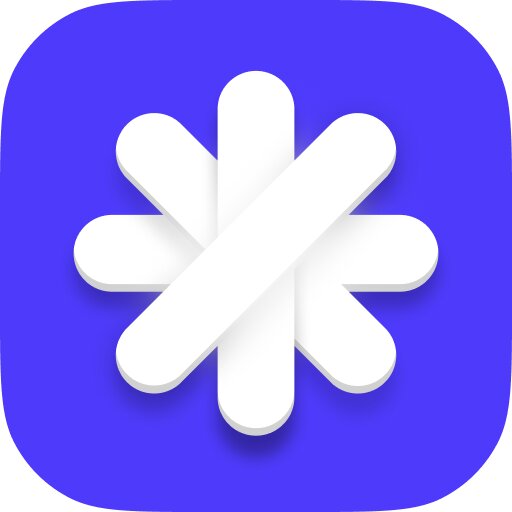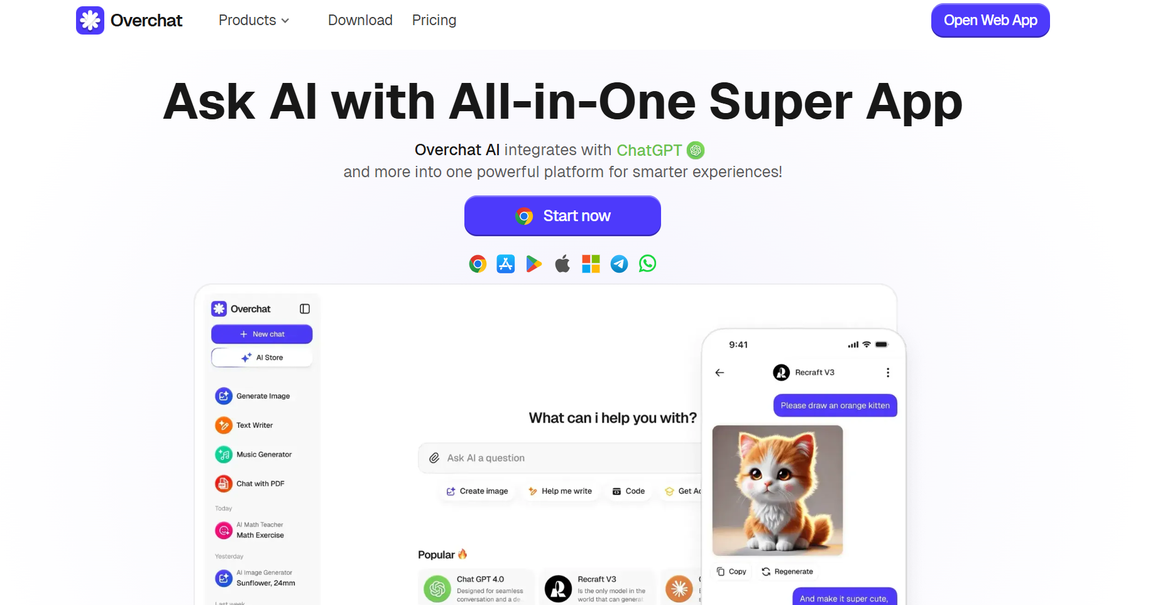According to a survey by the Digital Education Council Over 86% of students now use AI chatbots to study, with over 50% using AI weekly.

But what exactly are students asking AI chatbots, and how many of those questions are about cheating versus learning a new subject, given that AI chatbots can help with both?
Overcht AI, a service that provides easy access to all major AI models on a single platform, conducted a study in which they collected survey responses from 10,230 students who use various educational tools on the platform. Here’s what they found.
58% of Students Use AI to Get Answers
When it comes to primary intent, nearly half of users admitted to using AI tools to obtain immediate answers, according to Overchat AI data:
| User Intent | Percentage |
| Want immediate homework solutions | 58% |
| Want to understand subjects | 24% |
| Both | 28% |
This means that they used the tool the same way as when copying someone's homework — to get the right answer without putting in the work.
What’s more, many students seem to turn to AI tools at the very last minute — potentially right before an exam or homework deadline, and under time pressure.
“When we looked at how students interact with our educational bots, we found that over 35% of chats happened between 2 and 4 AM in the user’s local timezone,” says Andrew Dyuzhov, CEO of Overchat AI.
This kind of pattern makes it harder for students to truly learn the material, since they’re:
- Asking for quick answers instead of working through problems.
- Leaving no time to actually reflect on the lesson.
- Turning to AI at hours when their brains are least prepared to take in new information.
Why is this misuse happening? Some experts say that we need to work with students to explain that AI chatbots are not tools to shortcut learning.
Tara Nattrass, managing director at ISTE+ASCD, argues that what’s needed is a fundamental shift in approach.
"We need to reframe the conversation and engage with students around the ways in which AI can support them in their learning and the ways in which it may be detrimental to their learning," she said. "Students are using AI and will continue to do so with or without educator guidance."
20% of Students Admit to “Gaming the System”
Around one in five students in Overchat AI’s survey admitted to using AI in ways designed to avoid detection. Two common strategies that were flagged were to:
- Ask AI to match their academic level: Students ask the AI to rewrite assignments so they sound like they were written by someone at their grade level, or to deliberately mask obvious “AI-style” phrasing.
- Manipulate scores: Some request specific grades, or even ask the AI to include a small percentage of wrong answers on purpose.
Additionally, overchat AI’s data shows that students accept the first response 61% of the time, while in 39% of cases they ask for revisions— indicating that many are simply copying and pasting the AI output, instead of actively engaging with it.
What Subjects are Students Using AI For?
When it comes to subjects students turn to educational chatbots for, the most common ones are:
| Subject | Percentage |
| Mathematics | 28% |
| Language Arts/English | 16% |
| Foreign Languages | 14% |
| Science | 12% |
| Computer Science/IT | 10% |
| Social Studies/History | 8% |
This is based on the survey results collected by Overchat AI team, and reflects usage patterns on their service.
Demographics Plays a big Role in How Students Use AI
That being said, the way people use educational AI tools depends a lot on whether they are primary school students or college and university students.
It seems that using AI for cheating is more common among secondary school students, while university students tend to use it more as a learning aid.
“About 65% of our survey participants were in the 11–16 age bracket,” says Dyuzhov. “Kids definitely use AI a lot to finish their homework. We don’t believe in restricting access to these tools as they’re powerful learning aids — but we are looking at ways to encourage students to study more actively instead of just relying on quick answers.”
Regarding how the picture looks at the university level, there’s conflicting data.
A Higher Education Policy Institute study found 88% of UK students used AI for assessments, yet most view it as a learning aid rather than a cheating tool.
"ChatGPT kind of came along when I first joined uni, and so it's always been present for me," said Harvey, a business management student. "I don't think many people use AI and then would then copy it word for word, I think it's more just generally to help brainstorm and create ideas.".
That said, all of this should be taken with a grain of salt — students are naturally reluctant to admit to cheating, even anonymously.
The real percentage of those who use AI to cut corners on their studies is probably higher.
For instance, a Guardian investigation uncovered nearly 7,000 confirmed cases of AI cheating in 2023–24 — about 5.1 cases per 1,000 students, compared to 1.6 per 1,000 the previous year.
But according to Dr. Peter Scarfe, associate professor at the University of Reading, these figures understate the scale of the issue.
"I would imagine those caught represent the tip of the iceberg," he said. "AI detection is very unlike plagiarism, where you can confirm the copied text. As a result, in a situation where you suspect the use of AI, it is near impossible to prove."
Scarfe’s own research backs this up: in tests of their assessment systems, AI-generated work slipped through undetected 94% of the time.
Bottom Line
A new generation of students is increasingly turning to AI to get homework done rather than to actually learn the material — misusing educational tools that were designed to support learning, but often end up helping them shortcut the system instead.
“The education system hasn’t caught up with how students really use AI,” says Dyuzhov. “Right now, detection tools are far behind generation tools, and I wonder how schools will respond. This situation clearly isn’t sustainable.”
This analysis draws on 10,230 survey responses collected by Overchat AI through its platform in September 2025, alongside recent research on academic integrity from Turnitin, UK universities, and Stanford University.
###
Media Contact
Overchat AI
[email protected]
https://overchat.ai/
newsroom: news.38digitalmarket.com







